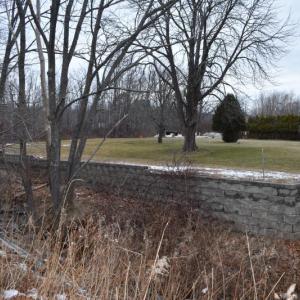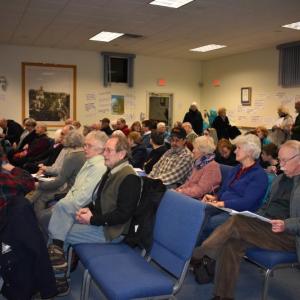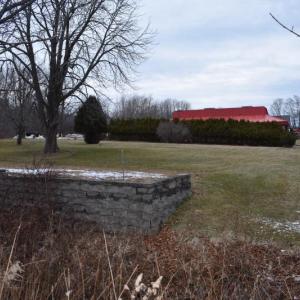Rockland Planning Board turns down permit application for Route 1 monopole
 The application for a proposed monopole tower that would have been constructed in the rear of this parcel of Camden Street land was denied Tuesday, Feb. 18. (Photo by Sarah Thompson)
The application for a proposed monopole tower that would have been constructed in the rear of this parcel of Camden Street land was denied Tuesday, Feb. 18. (Photo by Sarah Thompson)
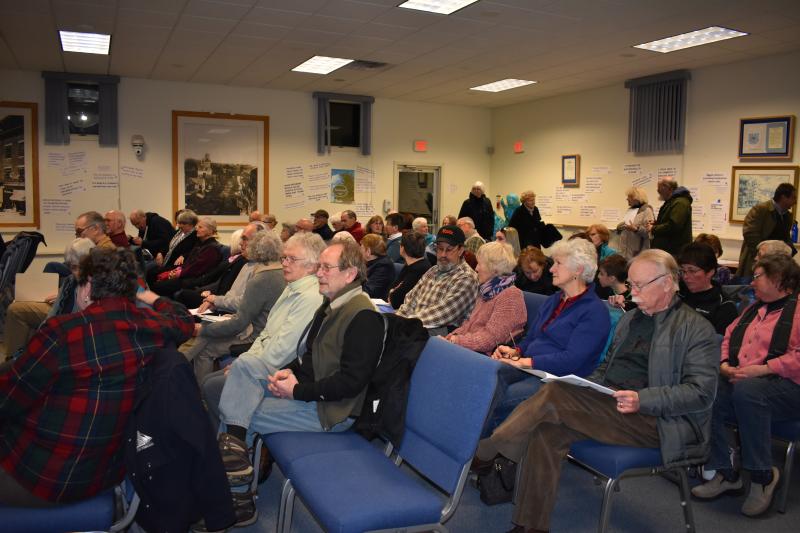 Audience members at a previous Planning Board meeting regarding a proposed monopole tower on Camden Street in Rockland. (Photo by Sarah Thompson)
Audience members at a previous Planning Board meeting regarding a proposed monopole tower on Camden Street in Rockland. (Photo by Sarah Thompson)
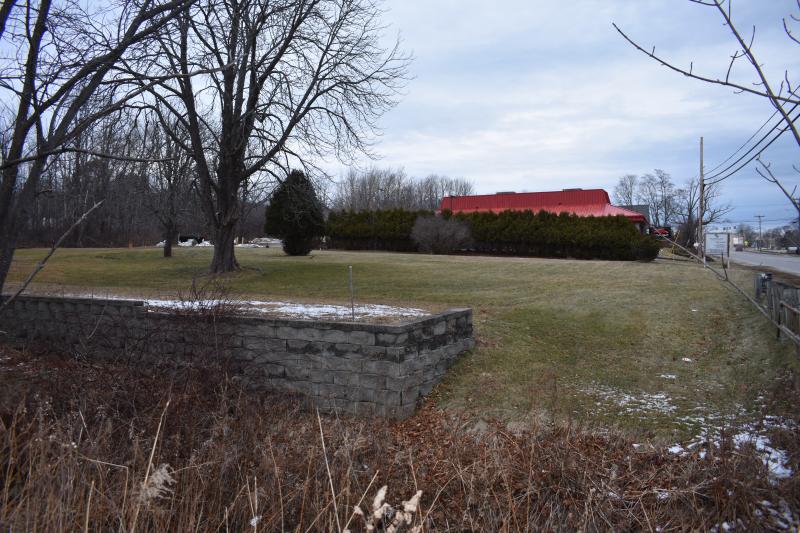 The proposed 120-foot monopole, if approved, would be erected on this parcel of land on Camden Street in Rockland, next to Pizza Hut. (Photo by Sarah Thompson)
The proposed 120-foot monopole, if approved, would be erected on this parcel of land on Camden Street in Rockland, next to Pizza Hut. (Photo by Sarah Thompson)
 The application for a proposed monopole tower that would have been constructed in the rear of this parcel of Camden Street land was denied Tuesday, Feb. 18. (Photo by Sarah Thompson)
The application for a proposed monopole tower that would have been constructed in the rear of this parcel of Camden Street land was denied Tuesday, Feb. 18. (Photo by Sarah Thompson)
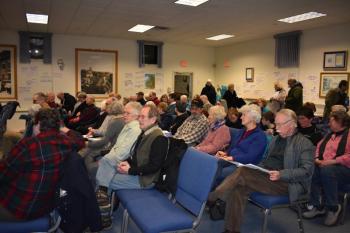 Audience members at a previous Planning Board meeting regarding a proposed monopole tower on Camden Street in Rockland. (Photo by Sarah Thompson)
Audience members at a previous Planning Board meeting regarding a proposed monopole tower on Camden Street in Rockland. (Photo by Sarah Thompson)
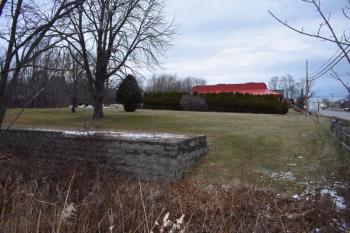 The proposed 120-foot monopole, if approved, would be erected on this parcel of land on Camden Street in Rockland, next to Pizza Hut. (Photo by Sarah Thompson)
The proposed 120-foot monopole, if approved, would be erected on this parcel of land on Camden Street in Rockland, next to Pizza Hut. (Photo by Sarah Thompson)
ROCKLAND — In a 3 - 0 vote, with one abstention, an application to construct a cell tower on Camden Street in Rockland was denied by the Rockland Planning Board, Tuesday, Feb. 18. The applicant’s lawyer, however, has mentioned the right to appeal the vote in federal court, according to Board Chair Erik Laustsen.
Despite the absence of two board members and the abstaining of a third member during the vote at the three-hour meeting, the Rockland Planning Board still held the quorum necessary to deny construction of a 120-foot monopole within the Camden Street Commercial Corridor Overlay Zone.
Six or seven years ago, a group of Rockland residents created specific language for that area in an effort to create a downtown-like shopping atmosphere with storefronts close to the road, according to Laustsen. That language requires a maximum – not minimum – setback of 10 feet, as well as varying setbacks, varying heights, window treatments, and structural and decorative elements to reduce apparent size and scale of all structures.
In the five years following approval of the downtown-like language, this monopole application is the first that the Planning Board has received, according to Laustsen. And, though, in general, the Board works with applicants to help them get to a point where applications meet approval, in this case, the Board saw no way for revision.
One of the reasons the application came before the Planning Board is for the Board’s ability to approve Special Class exceptions. Bay Communications, the company that filed the application, sought special approval for its 120-foot tower at 182 Camden Street. Usually towers are maxed at approximately 75 feet, according to Laustsen.
“We determined that screening of the tower was virtually impossible,” he said, “unless they planted full-grown sequoia trees or something.”
Other smaller issues that added to the denial included landscaping that didn’t meet requirements, as well as a lack of a proper stormwater study within the 15-page application.
“They did bring up the possibility that they still could go to the federal court,” he said.
Bay Communications’ attorney Jonathan Springer maintained that Camden Street overlay zone doesn’t apply to them for two reasons, according to Laustsen.
The first reason is due to a zoning map on the wall at City Hall that was never updated. A provision in a local ordinance states that the map must be updated within 30 days, and that there must be a special file kept, which has never happened.
“Our contention is.... the Planning Board doesn’t have the authority to dismiss it [review of the application] because things technically weren’t done properly,” said Laustsen.
The other reason is based on the 1996 FCC guidelines that prohibit consideration of health and environmental concerns when considering cell towers.
As well, according to Laustsen, “if the applicant can state that there’s no possibility of a tower going in from Maverick Street to the Rockport town line, our zoning could actually be overturned.”
Until the federal government makes that decision, the Rockland Planning Board will continue to follow their policy, which is that the overlay zone language prevails when interpretation is conflicted.
“We did what we could, and now it’s a matter of what fate will fall on us,” he said.
Reach Sarah Thompson at news@penbaypilot.com
Event Date
Address
United States

